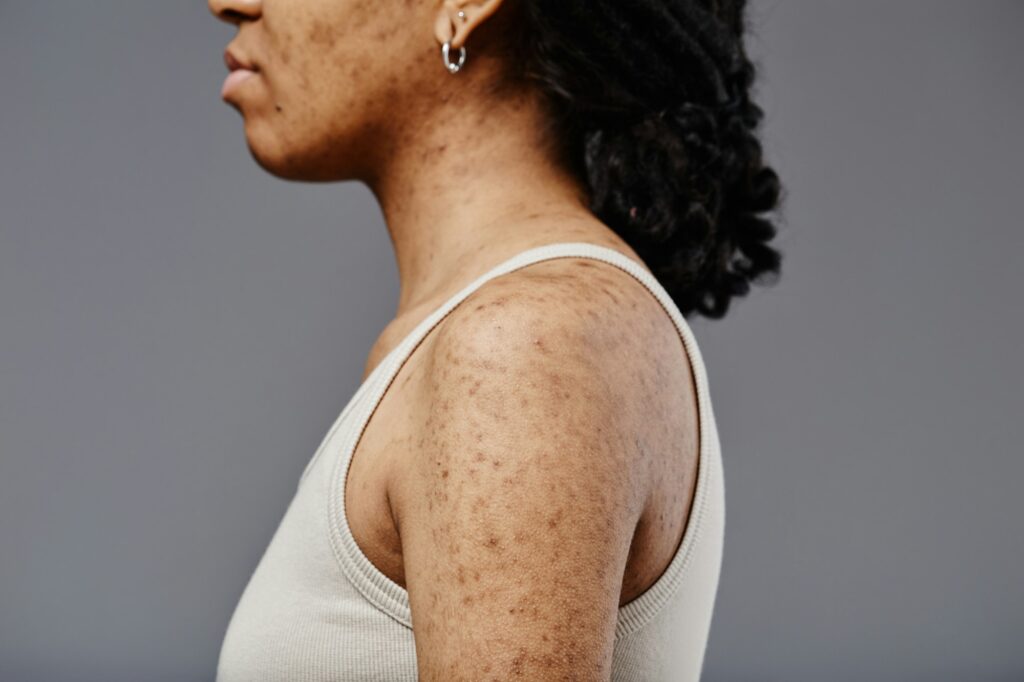About benzoyl peroxide irritation
About benzoyl peroxide irritation
Blog Article

Allergic Response to Acne Medication
Acne is a standard skin affliction that has an effect on millions of individuals around the world. Although you'll find many treatments readily available, ranging from around-the-counter creams to prescription prescription drugs, not all treatment options are suitable for everyone. A person considerable issue may be the potential for an allergic reaction to acne medication. This information will explore what an allergic reaction to acne medication entails, the indications to watch out for, and how to control and forestall such reactions.
Comprehension Allergic Reactions
An allergic reaction happens if the immune process mistakenly identifies a harmless compound to be a danger and responds by releasing substances like histamines. These substances induce indications that can range between delicate to significant. In regards to acne medication, the components in these items can at times trigger an allergic reaction.
Popular Acne Prescription drugs
Just before diving into allergic reactions, it's necessary to grasp the kinds of acne medicines that are generally utilized:
Benzoyl Peroxide: An about-the-counter therapy that kills micro organism and dries out the pores and skin. Salicylic Acid: A further more than-the-counter selection that can help to exfoliate the pores and skin and unclog pores. Retinoids: Prescription medicines that encourage cell turnover and stop clogged pores. Antibiotics: Both of those topical and oral antibiotics is usually prescribed to lower microbes and inflammation. Hormonal Treatment plans: Prescription drugs like start Handle tablets that control hormones and lessen acne.
Indications of an Allergic Response to Acne Medication
Recognizing the signs or symptoms of an allergic response to acne medication is vital for well timed intervention. Indicators can vary depending on the particular person and the specific medication but commonly contain:
Skin Redness: Purple, inflamed pores and skin is a common signal of the allergic response.- Itching: Persistent itching can point out an allergic reaction.
- Swelling: Swelling on the face, lips, or tongue is usually a significant symptom.
Rash: A rash or hives may create around the skin. - Difficulty Respiratory: In intense cases, an allergic response might cause issues breathing, which requires speedy clinical consideration.
Situation Research and Data
To better have an understanding of the prevalence and affect of allergic reactions to acne medication, let's look at some situation experiments and figures:
Scenario Analyze 1: Benzoyl Peroxide Allergy
A 17-calendar year-old feminine started using a benzoyl peroxide-dependent acne treatment. In a couple of days, she found serious redness and itching on her deal with. On consulting a dermatologist, she was diagnosed having an allergic response to benzoyl peroxide. She was encouraged to discontinue the medication and swap to a milder, non-allergenic therapy.
Circumstance Analyze two: Retinoid Reaction
A 22-yr-old male was prescribed a retinoid product for intense acne. Following a week of use, he created a rash and swelling close to his eyes. His dermatologist verified an allergic response on the retinoid and advisable an alternative therapy approach.
Figures
In line with a research posted from the Journal from the American Academy of Dermatology, approximately 5-ten% of individuals working with topical acne therapies expertise some method of allergic reaction. Even though most reactions are moderate, about 1-2% of scenarios can be significant, demanding instant clinical intervention.
Managing Allergic Reactions
In case you suspect that you'll be encountering an allergic reaction to acne medication, It really is necessary to just take fast action:
Discontinue Use: End using the medication quickly.Check with a Healthcare Expert: Seek advice from the dermatologist or healthcare service provider. Use Antihistamines: More than-the-counter antihistamines may also help reduce mild signs or symptoms. Apply Cold Compresses: Cold compresses can cut down swelling and itching. Seek Unexpected emergency Treatment: When you expertise critical signs and symptoms like problem respiratory, seek out unexpected emergency professional medical care right away.
Blocking Allergic Reactions
Avoidance is often better than remedy. Here are a few guidelines that can help reduce allergic reactions to acne medication:
Patch Exam: Always perform a patch test right before employing a new acne medication. Use a small amount to the discreet place of skin and hold out 24-48 hours to check out if any reaction occurs.Read through Labels: Carefully examine the ingredient listing on acne medicines to detect prospective allergens. - Talk to a Dermatologist: Before starting any new procedure, seek advice from a dermatologist to ensure It really is suited to the skin type.
Start out Slowly: Introduce new drugs little by little to observe how the skin reacts. Use Hypoallergenic Products and solutions: Opt for hypoallergenic acne remedies which are less likely to trigger allergic reactions.
Alternative Treatments
When you have experienced an allergic response to standard acne medications, there are actually different remedies available:
All-natural Solutions: Elements like tea tree oil, aloe vera, and honey have anti-inflammatory and antibacterial properties which will help address acne without having producing allergic reactions. Gentle Therapy: Blue light therapy can destroy acne-triggering micro organism with no usage of substances. - Dietary Adjustments: From time to time, dietary variations can help handle acne. Decreasing sugar and dairy intake continues to be shown to further improve pores and skin overall health in some people.
Conclusion
Allergic reactions to acne medication may be distressing, but they are workable with the best understanding and safety measures. By knowledge the indicators, taking rapid action, and consulting healthcare professionals, you may efficiently regulate and prevent allergic reactions. Generally carry out patch assessments, read labels, and check with a dermatologist before beginning any new treatment. If standard acne prescription drugs are not ideal for you, look at alternate treatments which are less likely to trigger allergic reactions. Your journey to very clear skin does not have to generally be hindered by weblink allergy symptoms; with the appropriate tactic, yow will discover a cure that works for you personally. Report this page